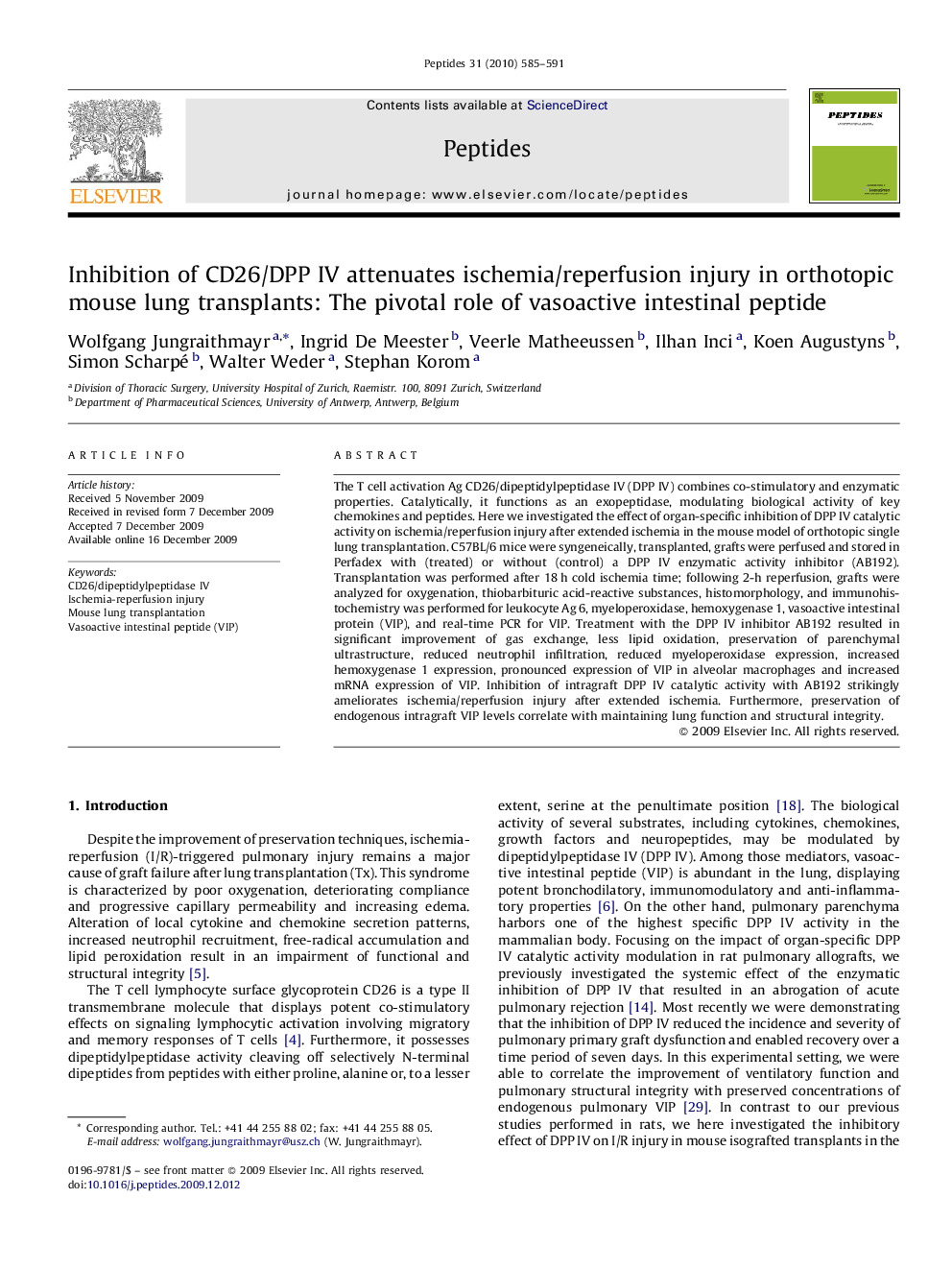| Article ID | Journal | Published Year | Pages | File Type |
|---|---|---|---|---|
| 2006882 | Peptides | 2010 | 7 Pages |
The T cell activation Ag CD26/dipeptidylpeptidase IV (DPP IV) combines co-stimulatory and enzymatic properties. Catalytically, it functions as an exopeptidase, modulating biological activity of key chemokines and peptides. Here we investigated the effect of organ-specific inhibition of DPP IV catalytic activity on ischemia/reperfusion injury after extended ischemia in the mouse model of orthotopic single lung transplantation. C57BL/6 mice were syngeneically, transplanted, grafts were perfused and stored in Perfadex with (treated) or without (control) a DPP IV enzymatic activity inhibitor (AB192). Transplantation was performed after 18 h cold ischemia time; following 2-h reperfusion, grafts were analyzed for oxygenation, thiobarbituric acid-reactive substances, histomorphology, and immunohistochemistry was performed for leukocyte Ag 6, myeloperoxidase, hemoxygenase 1, vasoactive intestinal protein (VIP), and real-time PCR for VIP. Treatment with the DPP IV inhibitor AB192 resulted in significant improvement of gas exchange, less lipid oxidation, preservation of parenchymal ultrastructure, reduced neutrophil infiltration, reduced myeloperoxidase expression, increased hemoxygenase 1 expression, pronounced expression of VIP in alveolar macrophages and increased mRNA expression of VIP. Inhibition of intragraft DPP IV catalytic activity with AB192 strikingly ameliorates ischemia/reperfusion injury after extended ischemia. Furthermore, preservation of endogenous intragraft VIP levels correlate with maintaining lung function and structural integrity.
